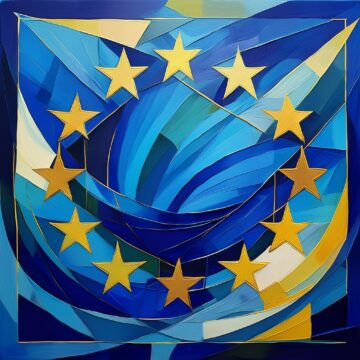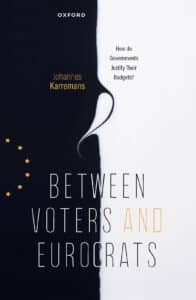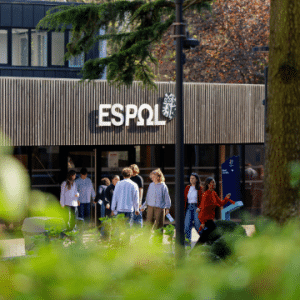This book delves into the intricate world of policies and politics in five pivotal Eurozone countries from 2008 to 2020.
Book release! Between voters and Eurocrats: How do Governments Justify their Budget

New book released on 12 February 2024
We are delighted to announce the publication of a new book by our esteemed colleague, Professor Johannes Karremans. His latest work, Between Voters and Eurocrats: How Do Governments Justify their Budgets?, has been released by Oxford University Press.
Professor Karremans’ book offers a deep dive into the complex interplay of politics and economics within the Eurozone. By examining budget speeches from five key countries – Austria, France, Germany, Italy, and Spain – between 2008 and 2020, he provides unprecedented insights into how governments articulate their fiscal policies to both domestic electorates and European institutions.
A standout feature of the book is the introduction of a novel method for coding budget speeches. This innovative approach will be invaluable to researchers seeking to explore similar topics. Furthermore, Professor Karremans challenges conventional wisdom by proposing a new framework that distinguishes between populism, representative democracy, and technocracy.

Between Voters and Eurocrats is a must-read for scholars, policymakers, and anyone seeking a deeper understanding of the complex dynamics shaping the Eurozone.
Professor Karremans’ research offers invaluable insights into the political and economic forces driving budget decisions in five key member states. By illuminating the strategies employed by governments to balance domestic pressures with European constraints, this book is essential for anyone interested in the future of the Eurozone and the broader implications for European integration.
We congratulate Professor Karremans on this outstanding achievement and look forward to the impact of his research.




